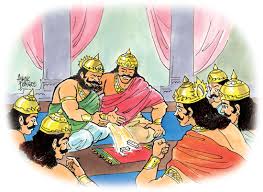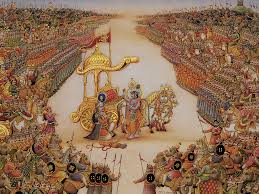Are you happy with the current monetary system? Do you think, it needs improvements?
For instance, I have some pet peeves like:-
1) Why, do I have to worry about my survival if the stock market(to which I am not privy) crashes.
2) Why do some bankers in suits have control over my life?
3) Why can't I live on an island in Italy, in a castle, surrounded by servants who would do my every command and never have to work a day, while Vijay Mallya can...;)?
Well, my pet peeves aside there is a small but clear dissatisfaction growing in people of our generation regarding the status quo of today's economies.
- We all seem to have comfortable yet highly stressful lives.
- We don't have to worry about food and yet slave for longer than farmers in a village.
- We have higher life expectancies and yet we fall prey to a larger set of stress related disorders.
- We have umpteen free land and yet are forced to live in polluted, over-crowded cities in small "caves".
Of course, the problems above are for those who are relatively affluent. It is a wonder that in what we call an advanced world there is still poverty, malnutrition, hunger and frankly living conditions not suited for farm animals.
We have two outdated systems responsible for this:
- Our monetary systems
- Our political systems
In this post I shall talk of only the monetary systems.
Monetary Systems
The concept of "money" or monetary systems evolved as a means of distributing "limited" resources among people. The major two systems Capitalism and Communism follow different ways to do this.
Capitalism believes that resources should be distributed based on the laws of profit, supply and demand. Hence, if there is no profit there should be no resource distributed(even for high demand).
Communism follows the other way around, where a group of guys in ties decide who gets what.
Needless to say, both systems are flawed , though "regulated" capitalism or mixed economies have slowly gained precedence.
But there is a major flaw!!! Both, systems are based on the fact that there is a shortage of "resources". In fact Capitalism actually encourages this shortage of resources.
A good example is that of the diamond industry. Diamond, is one of the most abundant forms of mineral on the world and there is no shortage of it. (If diamond was rare, you would have diamond investment funds like gold bonds. Diamond prices are a product of a cartel and hence are not good investment instruments.) Yet, it is sold at exorbitant prices to consumers mainly through a slick marketing campaign.
This would have been ok, if it was meant to just satisfy the ego's of some star-studded bimbos and rich people. However, diamond mining and trade has lead to the largest human rights violations in Africa as we all know from the whole blood diamond thing. The sale of diamonds has directly financed the many revolutions in Africa causing the loss of millions of human life.
Abundance
To see if an alternative system of living is possible, we need to look at which resource is actually "scarce" in the current world. The basic stuff food, water, shelter are more or less abundantly available.
1) Energy- There are numerous abundant sources of natural energy. We have the technology to tap it!! Yet, oil conglomerates cannot allow this as it would break their hegemony.
2) Minerals- Our reliance on rare minerals is getting lower and lower. We have synthesized enough replacements for the rare ones and have techniques that can help easily re-use the rare ones.
3) Office Space in Nariman Point- Now this is clearly a man-made scarcity. By using modern communication methods, one does not need to keep his office at Nariman Point.
Ultimately, I believe that modern technology has given us the means to live life comfortably for all of the 6 Billion plus people on the planet, yet it's the very monetary and political systems that we have designed that don't allow the free flowing distribution of this "abundance".
The path ahead- Technologism
Any system comes to a breakdown point when enough people realize that it is not meeting it's objectives or the objectives themselves change.
Most people would agree on the following vision of an ideal society(details may be hotly debated):-
1) Everyone should have all the basic necessities of life which includes free medical care, shelter, education, food, ability to travel to exotic places, iPods, Latptops and whatever else their heart desires.
2) People should strive to work for a purpose other than simply money. All people, should do higher level things like advance Art, Science , Sports etc and stop having to do lower level jobs like farming, ticket collection , factory workers, management!!! which can be easily automated by robots.
In such a society above, money would not be an important thing.
Many, of you would be wondering, that this is just a pipe dream!!!. But, take a look at the following statistics:
1) The number of farmers in the world have declined from 90% of the population 300-400 years ago to around 33%. (This is also an inflated number. Many people are still farming because there is nothing else for them to do).
2) Automation has lead to job losses of millions world-wide.
The funny thing is that the affects above are due to "Capitalism" and the "Money System". In an effort to increase profits, corporations must cut costs by bringing in more automation. However, what the current systems have not yet addressed is what happens to people who are no more working!! In the current system, they die poor and jobless. Most, of them find other jobs or are protected by social safety nets.
But, what would happen when a tipping point is reached say when Robotics finally arrives and even the few manufacturing jobs available are lost. With no workers, to manage what would happen to the supervisors and the operational managers?
With a major part of the economic work-force unemployed and unable to purchase goods in a traditional system, what would happen to the "Upper Managers" and "Financial Analysts"?
In other words, the whole system would come falling down like a pack of cards to be replaced by a new system, one in which technology would decide the distribution of goods and a new social order is created.
But, what has all this got to do with me today?
Many of you reading the blog at this point may be thinking, yawn....this is just another psuedo-intellectual lecture. None of this is going to change in my life and when this happens good luck to the guys alive them. As for me, I am going to go to work tomorrow since I still have to pay home loans and it still costs money to watch movies......
However, the world needs you!! A system will always change when put under stress. But, the new system , the details, will depend on what ideas are generated years before.
Communist ideas came in the late 1800's, yet it was not until 1920's (Russia) that they could be put in practice. The ideas of many famous philosophers bore fruit years and years later.
We as today's generation have a moral responsibility to start "visioning" this future which we know is inevitable. We need to come out with great ideas for this future and bring about the small small changes that will ultimately lead to the tipping point of a better societal and economic structure.
Many organizations already do this. I strongly encourage people to see the ideas by http://www.thevenusproject.com/ who are trying to envision such societies.
If a system collapses suddenly(As the French found out during the French revolution), violence is usually a by-product and in our case if we do not evolve to a better society, we will regress into the dark ages as the religious zealots use the resentment generated by the current system to become anti-technologists and bring us into perpetual decline!!!
The choice is yours..........
.












